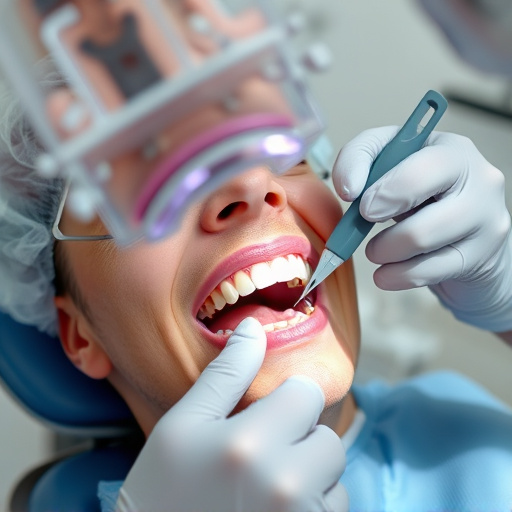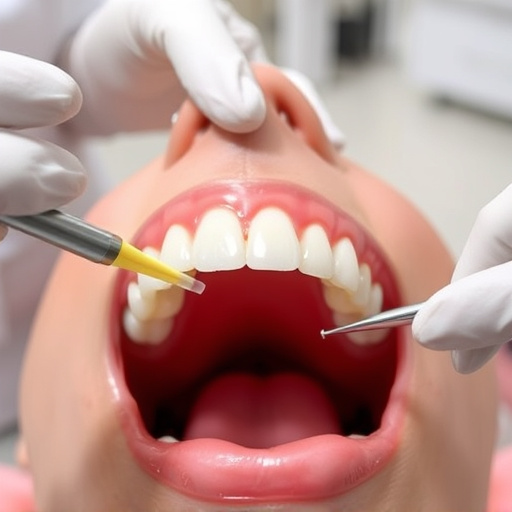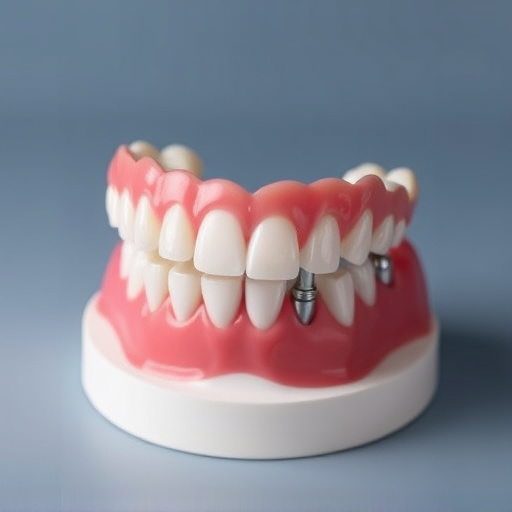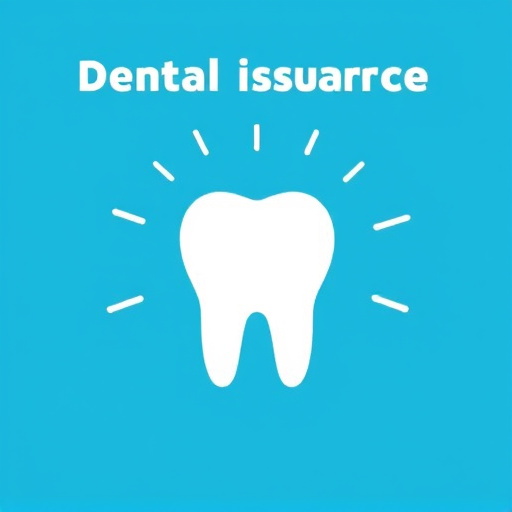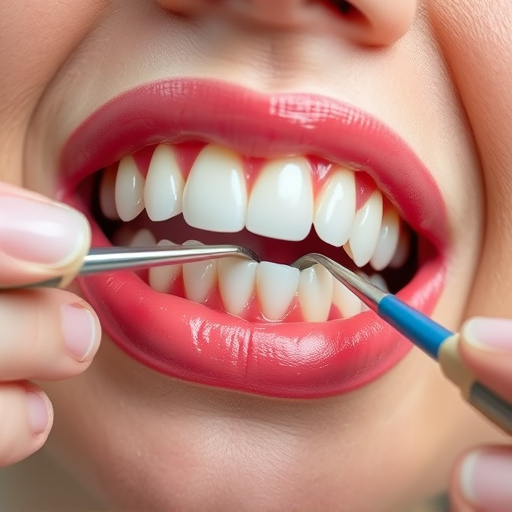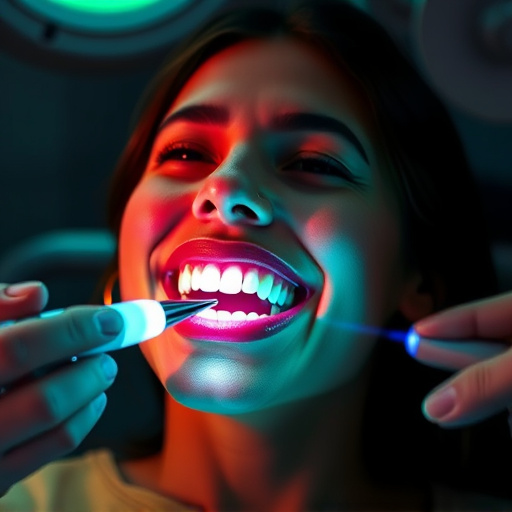Wisdom teeth, frequently causing impaction and complications, require removal for pain relief and to prevent damage. Sedation dentistry offers a comfortable alternative, alleviating anxiety, minimizing discomfort, and facilitating quicker recovery. After wisdom teeth removal, prioritizing comfort with rest, soft diet, hydration, ice packs, salt water rinses, and avoiding smoking/alcohol is crucial for successful healing. Following dentist-prescribed aftercare ensures optimal oral health post-removal.
Considering wisdom teeth removal? Sedation and advanced techniques offer a pain-free experience. This comprehensive guide explores why and when it’s necessary, highlighting the benefits of sedation for a calm procedure. We provide essential tips for minimizing discomfort post-op, ensuring a swift recovery. Learn about optimal care to make your wisdom teeth removal journey as comfortable as possible.
- Understanding Wisdom Teeth Removal: Why and When It's Necessary
- The Benefits of Sedation for a Pain-Free Experience
- Minimizing Discomfort After the Procedure: Care and Recovery Tips
Understanding Wisdom Teeth Removal: Why and When It's Necessary
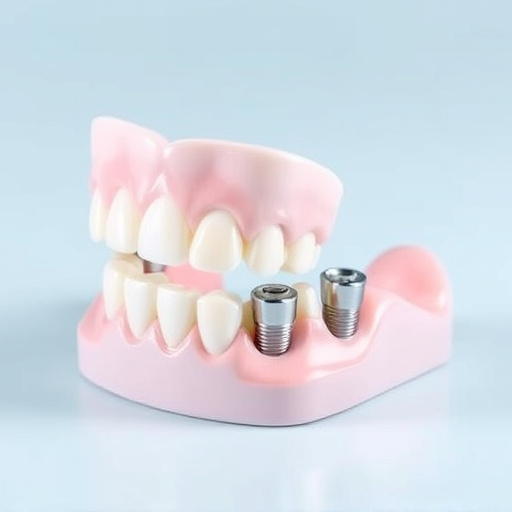
Wisdom teeth, or third molars, are the last set of teeth to emerge, often appearing in late teens or early twenties. However, many individuals discover that their wisdom teeth do not fully erupt or get stuck within the jawbone, a condition known as impaction. This can lead to various dental issues such as pain, infection, damage to adjacent teeth, and even cysts. Therefore, wisdom teeth removal becomes necessary.
Wisdom teeth removal is a common procedure in restorative dentistry, addressing problems that can arise from these unerupted or partially erupted teeth. In some cases, patients may only experience mild discomfort, but for many, it can be painful and lead to complications. Sedation dentistry offers a comfortable alternative, allowing patients to undergo the procedure with minimal anxiety and discomfort. This approach ensures a smoother recovery and is particularly beneficial for those who have sensitive dental fears or require more extensive treatments, including cosmetic or restorative procedures like dental fillings to address associated issues.
The Benefits of Sedation for a Pain-Free Experience
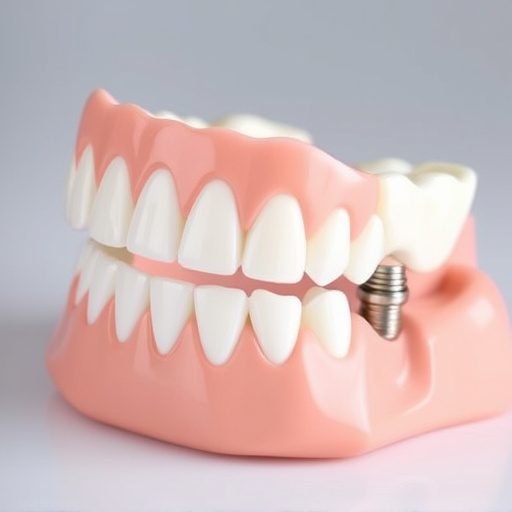
The decision to undergo wisdom teeth removal can be daunting, but incorporating sedation techniques offers a game-changer for patients seeking a pain-free experience. Sedation goes beyond simply numbing the area; it provides a calm and relaxed state, making the procedure less stressful. This is especially beneficial for those with sensitive teeth or a history of discomfort during dental procedures. With sedation, patients can remain comfortable and even sleep through the tooth extractions, ensuring minimal to no awareness of the process.
This method is not just about comfort; it also enhances safety. Patients under sedation are less likely to experience sudden movements or panic, leading to a more controlled environment for the dental surgeon. It allows for precise teeth cleaning and tooth repair, resulting in quicker recovery times and reduced post-operative pain. Thus, sedation turns what could be an intimidating procedure into a manageable and often times painless journey towards healthier oral health.
Minimizing Discomfort After the Procedure: Care and Recovery Tips
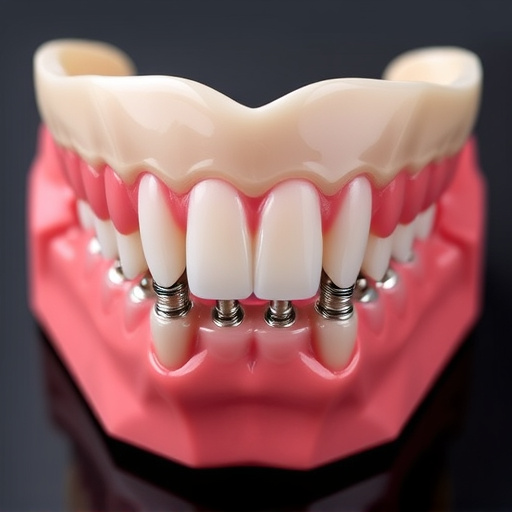
After wisdom teeth removal, minimizing discomfort is key to a swift recovery. Patients are often advised to take it easy for the first 24 hours, avoiding strenuous activities and maintaining a soft diet. Staying hydrated is crucial; sipping water helps keep the mouth moist, aiding in healing. Ice packs can be applied externally to reduce swelling, especially during the initial stages post-surgery.
Proper care involves gently cleaning the mouth using a salt water solution recommended by your dentist. This ensures the extraction sites remain clean and promotes faster healing. It’s important to avoid smoking and excessive alcohol consumption, as these can impair blood clotting and delay recovery. Following the dentist’s aftercare instructions, including any prescribed medications, will significantly contribute to a comfortable and successful wisdom teeth removal experience. Additionally, scheduling routine oral exams with your general dentistry practice ensures ongoing oral health and peace of mind.
Wisdom teeth removal, when done with modern techniques like sedation and proper post-procedure care, can be a relatively comfortable experience. By understanding the necessity of this procedure and utilizing available options for pain management and recovery, patients can navigate the process with minimal discomfort. This ensures not only a safer removal but also a quicker return to daily activities, making it an ideal solution for managing wisdom teeth.


